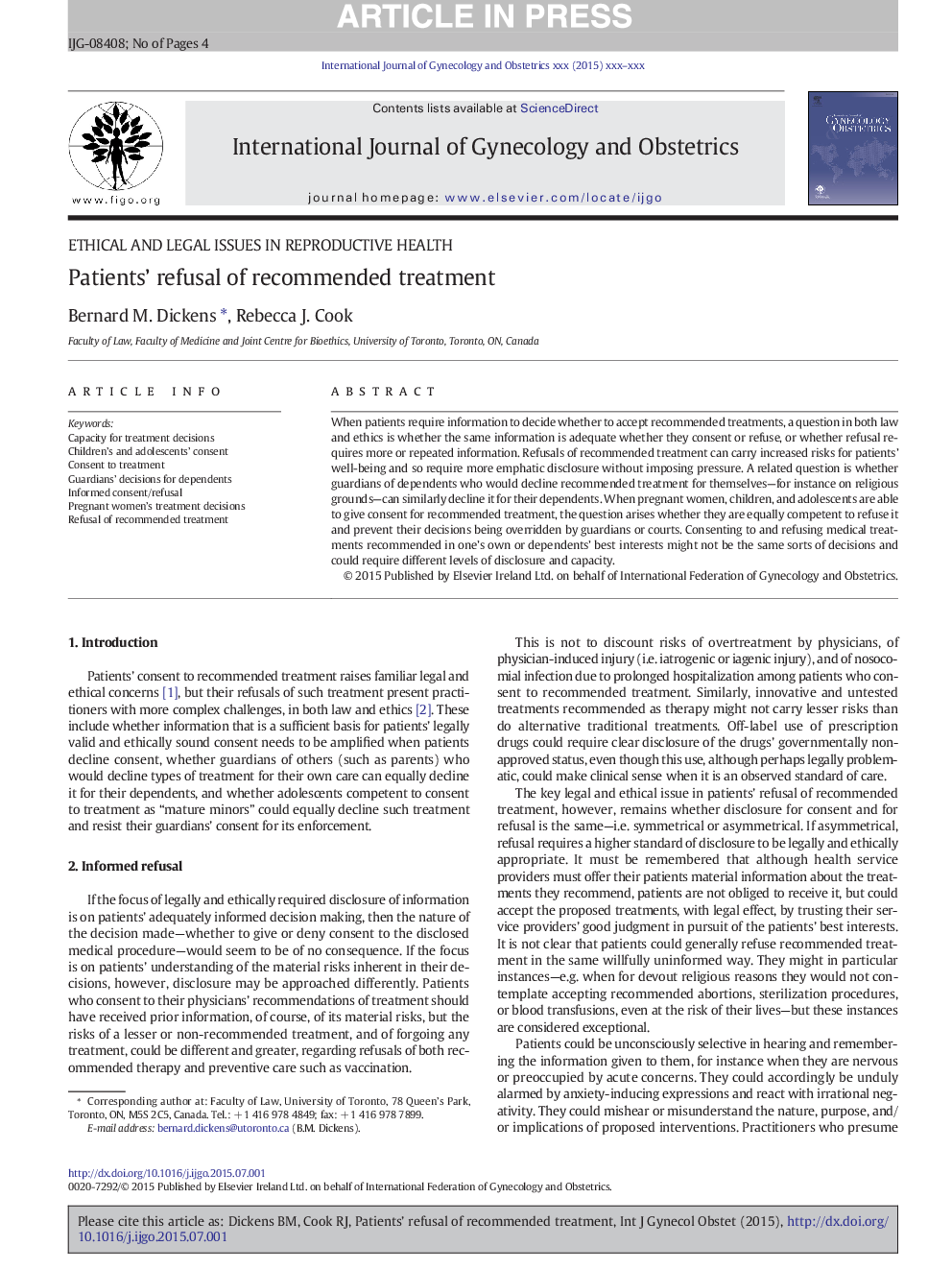| Article ID | Journal | Published Year | Pages | File Type |
|---|---|---|---|---|
| 6186099 | International Journal of Gynecology & Obstetrics | 2015 | 4 Pages |
Abstract
When patients require information to decide whether to accept recommended treatments, a question in both law and ethics is whether the same information is adequate whether they consent or refuse, or whether refusal requires more or repeated information. Refusals of recommended treatment can carry increased risks for patients' well-being and so require more emphatic disclosure without imposing pressure. A related question is whether guardians of dependents who would decline recommended treatment for themselves-for instance on religious grounds-can similarly decline it for their dependents. When pregnant women, children, and adolescents are able to give consent for recommended treatment, the question arises whether they are equally competent to refuse it and prevent their decisions being overridden by guardians or courts. Consenting to and refusing medical treatments recommended in one's own or dependents' best interests might not be the same sorts of decisions and could require different levels of disclosure and capacity.
Related Topics
Health Sciences
Medicine and Dentistry
Obstetrics, Gynecology and Women's Health
Authors
Bernard M. Dickens, Rebecca J. Cook,
